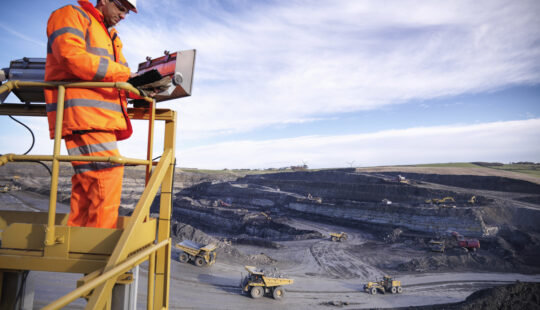Navigating the energy trilemma – affordability, reliability, and safety – is nothing new for Jemena, an energy infrastructure company based in Australia. What’s changed is the urgency of shifting to renewable energy to address climate change, while reaching Australia’s net-zero goals.
“Our vision for energy has evolved with the needs and preferences of our customers. We are committed to delivering on our ambition to achieve net-zero emissions by 2050, while supporting Australia’s decarbonisation efforts,” said Russell Dawson, general manager of commercial finance at Jemena. “We are taking a multi-pronged approach. This includes supporting our customers to install solar panels on their properties across our electricity network in Victoria. Across our gas network, we’re exploring renewable gases with a series of pilot projects producing green hydrogen and biomethane.”
Operating $12.4 billion of assets in eastern and northern Australia, Jemena distributes electricity to more than 370,000 customers in Victoria and gas to 1.5 million customers across Sydney and parts of regional New South Wales. The company also operates gas pipelines that serve industrial customers and exports. Dawson shared his thoughts on the dynamically changing energy industry during the International SAP Conference for Energy and Utilities in Basel.
How to carefully plan for the energy transition
Right in the middle of the energy supply chain, Jemena owns the physical infrastructure that transports energy from where it is generated to Australian homes and businesses.
“Our role is to make sure people have reliable and safe energy today, while taking steps to prepare for the energy system of the future, delivering customer choice and system reliability” said Dawson.
Of course, infrastructure transformation doesn’t happen overnight and needs to be carefully planned.
“At Jemena we talk about the concept of do-ability, which reflects the opportunities and limitations inherent in the decarbonisation challenge,” said Dawson. “As we compete on a global scale for access to resources and labour for achieving net-zero goals, we’re keeping all options on the table. For example, if we were to decarbonise our gas and electricity networks simultaneously, we would save time and money while delivering system optionality and reliability. Underpinning this transition is technology, and we’re really excited about the evolving role technology will play in the energy transition.”
Technology supports strategic sustainable business
Like most companies across the energy industry, Jemena is counting on cloud-based technology to help integrate and analyse relevant data that will support the company in navigating the energy transition. Capturing real-time data to meet sustainability reporting mandates is another important consideration. Whether it’s financial, supply chain, or other information from the energy value chain, utility leaders need to understand the import of the data, gaining insights so they can make better decisions.
“We’re excited about SAP S/4HANA because it will be transformational in driving our business forward with greater efficiencies, helping us meet our sustainability objectives, while ensuring our supply chain meets community and other stakeholder expectations,” said Dawson. “We expect that automation will take on repetitive tasks and provide predictive analysis and forecasting, freeing people up to make faster decisions and execute on strategies that will drive the business forward. Strategic decision-makers are the catalysts of change.”
Digitalisation attracts top talent
Advanced technologies are just as important to Jemena’s ability to attract young talent. Meeting the expectations of the post-pandemic workforce translates to systems that keep employees engaged in a vibrant and creative environment.
“People entering the workforce are much more tech-savvy than previous generations,” said Dawson. “We can use technology to make our employees’ jobs easier and keep them engaged. Integrated data makes it easier to get insights from the valuable information we have, and collaborative systems bring people together for a shared cultural experience. ”
It’s all well and good to set ambitious net-zero goals, but navigating the energy transition will require greater coordination and integration between all parts of Jemena’s business. The innovators are pressing forward with a business model evolution unlike anything we’ve ever seen before.
Learn more about preparing for the future of the energy and utilities industry.
This article originally appeared in Forbes Brand Voice here



